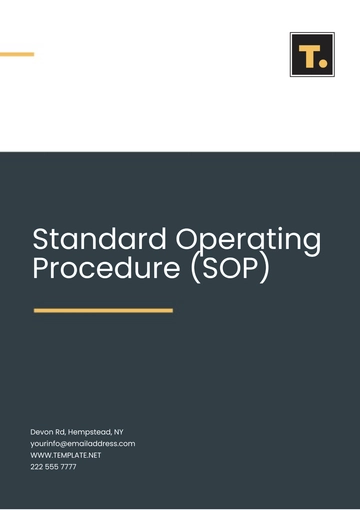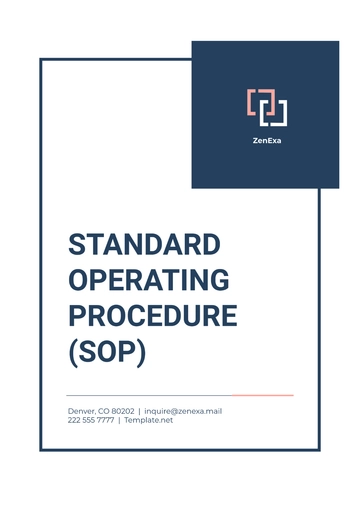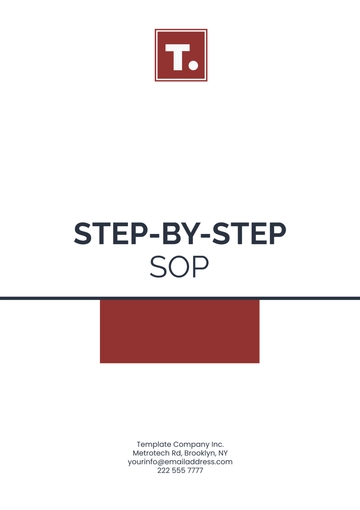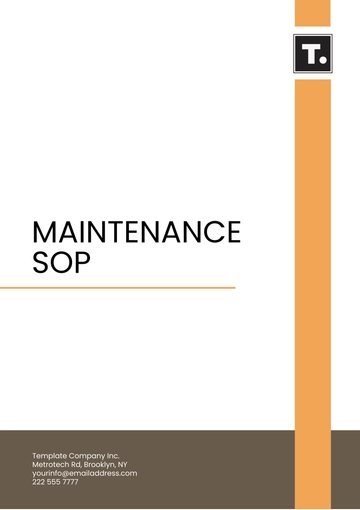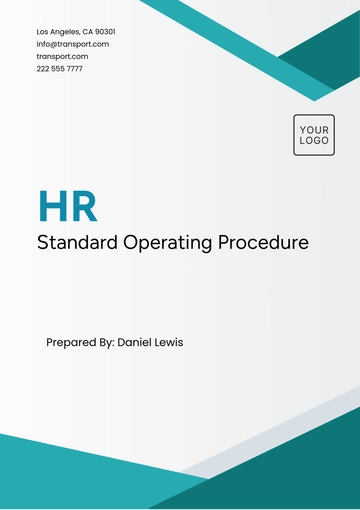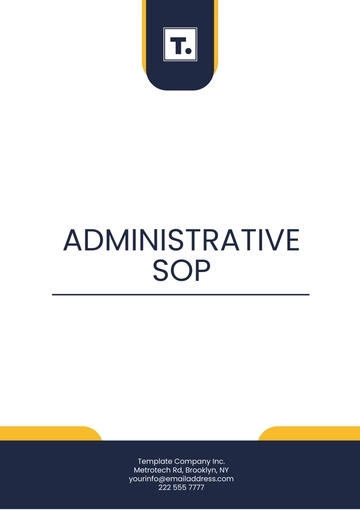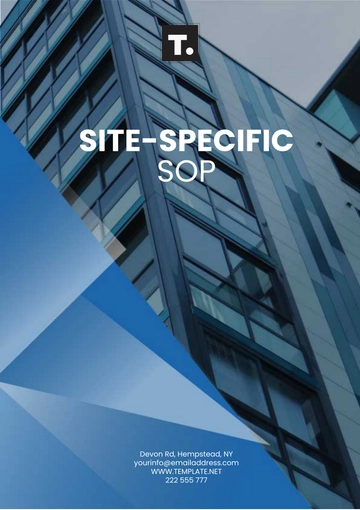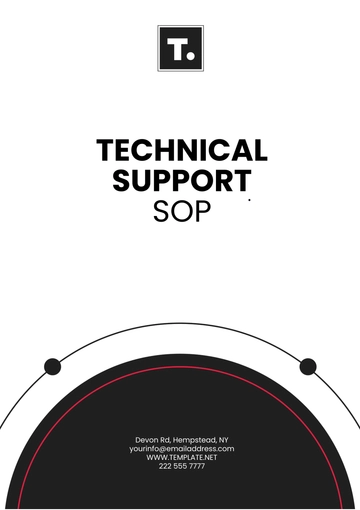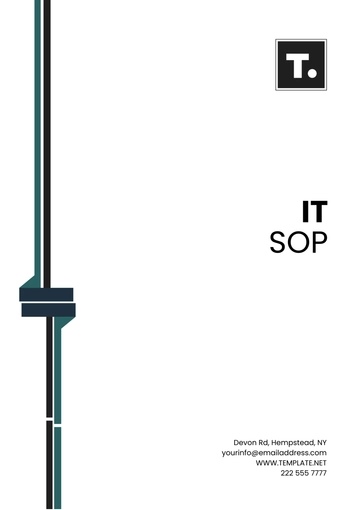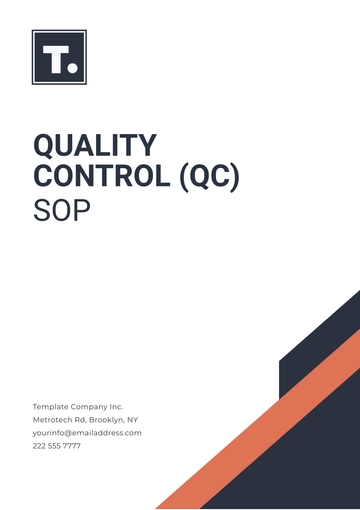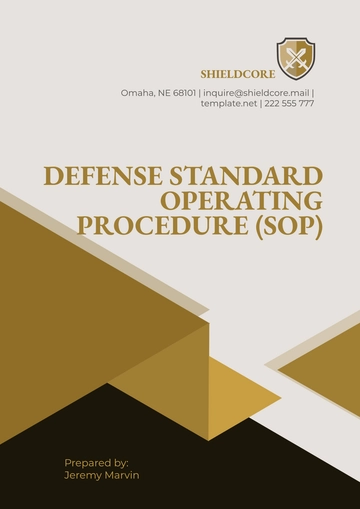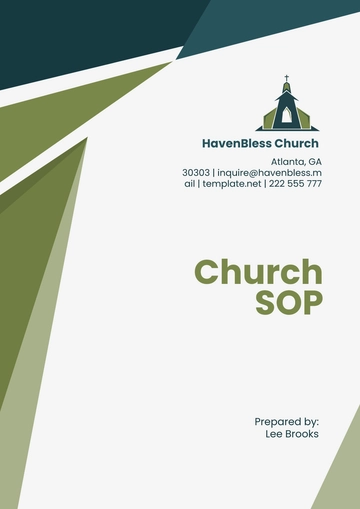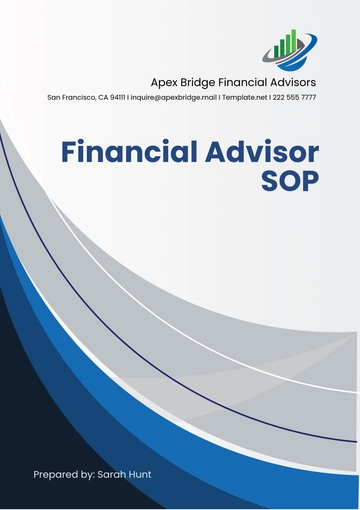Free School Finance SOP

I. Purpose
The purpose of this Standard Operating Procedure (SOP) is to outline the policies and procedures for managing and overseeing the financial operations of [Your Company Name]. This SOP aims to ensure accuracy, accountability, and transparency in all financial transactions and reports. By establishing clear guidelines and standardized practices, we seek to maintain the integrity of our financial processes and ensure compliance with applicable laws and regulations. This document serves as a comprehensive guide for staff members involved in financial management, providing them with the necessary tools and information to perform their duties effectively.
Furthermore, this SOP is designed to safeguard the financial resources of [Your Company Name], promoting responsible and ethical financial practices. It addresses key aspects of financial management, including budgeting, accounting, financial reporting, internal controls, and audits. By adhering to these procedures, we aim to minimize financial risks, prevent fraud, and ensure that all financial activities align with the strategic goals and objectives of our institution. This SOP is a living document, subject to periodic review and updates to reflect changes in regulations, organizational structure, and best practices in financial management.
II. Scope
This SOP applies to all employees involved in financial operations within [Your Company Name], including but not limited to the finance department, administrative staff, and school management. It encompasses all financial activities, such as budgeting, revenue management, expenditure control, procurement, and financial reporting. This SOP is applicable to both routine financial transactions and exceptional circumstances that may require special approval or procedures.
The scope of this SOP also includes the use of financial software and systems utilized by [Your Company Name] for financial management. It outlines the responsibilities of employees in utilizing these systems, ensuring data accuracy, and maintaining confidentiality. Additionally, this SOP covers the communication channels and reporting mechanisms for financial matters, both internally within the organization and externally with regulatory bodies or auditors.
Furthermore, this SOP extends to the establishment and maintenance of internal controls to safeguard assets, prevent fraud, and ensure compliance with relevant laws and regulations. It sets forth the principles of financial integrity and accountability that all employees are expected to uphold. Adherence to this SOP is essential for maintaining the financial health and reputation of [Your Company Name], as well as for fostering trust among stakeholders, including students, parents, staff, and regulatory agencies.
III. Responsibilities
In ensuring effective financial management, delineating clear responsibilities is paramount. The table below outlines the roles and responsibilities of key personnel involved in financial operations within [Your Company Name]. Each role plays a crucial part in upholding financial integrity, from overall management and budgeting to day-to-day transactions and communication.
Role | Responsibilities |
|---|---|
Finance Manager |
|
Accounting Staff |
|
School Principal |
|
Administrative Staff |
|
IV. Procedures
Effective financial procedures are essential for maintaining fiscal responsibility and accountability. The following procedures outline the steps to be followed in budgeting, expense management, revenue management, and financial reporting within [Your Company Name]. By adhering to these guidelines, we aim to ensure transparency and accuracy in our financial operations.
A. Budgeting
Budgeting is a critical aspect of financial management, providing a roadmap for allocating resources and achieving financial goals. The following steps outline our budgeting process:
Prepare an annual budget: At the beginning of the fiscal year, the finance department collaborates with department heads to develop a comprehensive budget that aligns with the school's strategic objectives.
Meeting with department heads: Finance managers meet with department heads to collect budget requests and discuss financial priorities for the upcoming year.
Review and consolidate requests: Finance managers review and consolidate all budget requests into a draft budget for presentation.
Present to the school board: The draft budget is presented to the school board for approval, ensuring transparency and accountability in budget allocation.
Monitor and adjust: Monthly budget performance is monitored, and adjustments are made as necessary to ensure financial stability and adherence to the budget.
B. Expense Management
Expense management involves controlling costs and ensuring that expenditures are within budgetary constraints. The following steps outline our expense management procedures:
Pre-approval: All expenditures must be pre-approved by the Finance Manager to ensure alignment with the budget and financial policies.
Expense requisition: Staff members complete and submit an expense requisition form, providing details of the expense and attaching supporting documents such as quotes and invoices.
Review and approval: The Finance Manager reviews and approves or denies requisitions within three business days, ensuring timely processing of expenses.
C. Revenue Management
Effective revenue management is crucial for maintaining financial stability and supporting the school's operations. The following steps outline our revenue management procedures:
Record incoming funds: All incoming funds, including grants, donations, and tuition fees, are recorded immediately upon receipt to ensure accurate financial records.
Standardized receipt book: A standardized receipt book is used for all cash transactions to maintain a clear audit trail of revenue sources.
Deposit funds promptly: Checks and electronic transfers are deposited within two business days to minimize the risk of loss or theft.
Maintain a detailed ledger: A detailed ledger of all revenue sources is maintained to track income and ensure compliance with financial regulations.
D. Financial Reporting
Comprehensive financial reporting provides stakeholders with insights into the school's financial health and performance. The following steps outline our financial reporting procedures:
Generate monthly financial statements: Monthly financial statements, including balance sheets, income statements, and cash flow statements, are generated to provide an overview of the school's financial position.
Submit quarterly reports: Quarterly financial reports are submitted to the school board for review, ensuring transparency and accountability in financial management.
Conduct annual audit: An annual financial audit is conducted with an external auditor to ensure compliance with regulations and identify areas for improvement in financial management.
By following these procedures, we aim to maintain financial integrity and accountability within [Your Company Name], supporting our mission of providing quality education to our students.
V. Compliance
Compliance with federal, state, and local laws and regulations is crucial for maintaining the financial integrity and reputation of [Your Company Name]. This section outlines the key areas of compliance that must be adhered to in all financial operations.
Federal Compliance
1. IRS Regulations
Ensure accurate and timely filing of all tax returns, including payroll taxes, income taxes, and any other applicable federal taxes.
Maintain proper documentation for all financial transactions to support tax filings and audits.
2. Federal Funding Requirements
Adhere to the requirements of any federal grants or funding received, including proper use of funds, reporting, and documentation.
Ensure compliance with the Federal Funding Accountability and Transparency Act (FFATA) by reporting the use of federal funds as required.
State Compliance
1. State Tax Regulations
Comply with state tax laws, including sales tax, property tax, and any other applicable state taxes.
File all required state tax returns accurately and on time.
2. State Funding and Grants
Adhere to the requirements of any state grants or funding received, ensuring proper use and documentation of funds.
Report the use of state funds as required by state regulations.
Local Compliance
1. Local Tax Regulations
Comply with local tax laws, including any municipal taxes or assessments.
File all required local tax returns accurately and on time.
2. Local Funding and Grants
Adhere to the requirements of any local grants or funding received, ensuring proper use and documentation of funds.
Report the use of local funds as required by local regulations.
Internal Controls
1. Internal Audits
Conduct regular internal audits to ensure compliance with all applicable laws and regulations.
Implement corrective actions promptly if any compliance issues are identified.
2. Training and Education
Provide ongoing training and education for all employees involved in financial operations to ensure they are aware of and understand all relevant laws and regulations.
Keep up-to-date with any changes in laws or regulations and adjust procedures accordingly.
Reporting and Documentation
1. Accurate Record-Keeping
Maintain accurate and up-to-date financial records to support compliance with all federal, state, and local regulations.
Ensure that all financial transactions are properly documented and easily accessible for review and audit purposes.
2. Transparency
Promote transparency in all financial operations by providing clear and accurate reports to stakeholders, including the school board, auditors, and regulatory agencies.
Ensure that any discrepancies or issues are promptly addressed and reported as required.
VI. Record Keeping
Maintaining comprehensive and accurate financial records is essential for ensuring compliance, supporting audits, and providing transparency in financial operations. [Your Company Name] is committed to upholding the highest standards of record keeping to protect the integrity of our financial information. This section outlines the policies and procedures for maintaining and securing financial records.
Duration of Record Keeping
All financial records must be maintained for a minimum of seven years. This duration aligns with the statute of limitations for various federal and state financial regulations, ensuring that [Your Company Name] can provide documentation for audits, compliance checks, and any potential legal inquiries.
Types of Financial Records
1. Accounting Records
General ledgers, journals, and trial balances.
Accounts payable and receivable records.
Bank statements, reconciliations, and canceled checks.
Payroll records, including timesheets and payroll tax filings.
2. Financial Statements
Monthly, quarterly, and annual financial statements, including balance sheets, income statements, and cash flow statements.
3. Tax Records
Filed federal, state, and local tax returns.
Supporting documentation for tax filings, such as receipts and invoices.
Correspondence with tax authorities.
4. Grant and Funding Records
Documentation related to federal, state, and local grants, including applications, award letters, and expenditure reports.
5. Audit Records
Internal and external audit reports.
Supporting documentation for audit findings and corrective actions.
Storage and Security
1. Physical Records
Store all physical financial records in a secure, locked location accessible only to authorized personnel.
Ensure that the storage area is protected against environmental hazards such as fire, water damage, and pests.
2. Digital Records
Maintain digital copies of all financial records using secure financial management software.
Implement robust cybersecurity measures, including encryption, firewalls, and regular backups, to protect digital records from unauthorized access, data breaches, and data loss.
3. Access Control
Restrict access to financial records to authorized personnel only.
Implement a system of access controls, including user authentication and role-based permissions, to ensure that employees can access only the information necessary for their roles.
Record Disposal
At the end of the seven-year retention period, financial records that are no longer needed for legal, compliance, or operational purposes should be securely disposed of to protect sensitive information.
1. Physical Records
Shred or incinerate physical records to ensure that they cannot be reconstructed or accessed by unauthorized individuals.
2. Digital Records
Use secure data deletion methods to permanently erase digital records, ensuring that they cannot be recovered.
Regular Review
Conduct regular reviews of record-keeping practices to ensure compliance with all applicable laws and internal policies. This includes periodic audits of both physical and digital records to verify that they are complete, accurate, and securely stored.
By maintaining rigorous record-keeping practices, [Your Company Name] ensures the integrity, accuracy, and security of our financial information, supporting compliance with regulatory requirements and promoting trust among stakeholders.
VII. Contact Information
Should there be any issues or concerns regarding this SOP, please contact:
Email: [Your Company Email]
Phone: [Your Company Number]
Address: [Your Company Address]
VIII. Revision History
Version | Date | Description | Author |
|---|---|---|---|
1.0 | [Month Day, Year] | Initial release | [Your Name] |
- 100% Customizable, free editor
- Access 1 Million+ Templates, photo’s & graphics
- Download or share as a template
- Click and replace photos, graphics, text, backgrounds
- Resize, crop, AI write & more
- Access advanced editor
Standardize your financial processes with the School Finance SOP Template from Template.net. This editable and customizable template helps you create clear and detailed standard operating procedures for your school’s finance department. Editable in our Ai Editor Tool, it offers a user-friendly experience, making it easy to tailor to your specific needs. Ensure consistency and efficiency with this essential SOP template.
